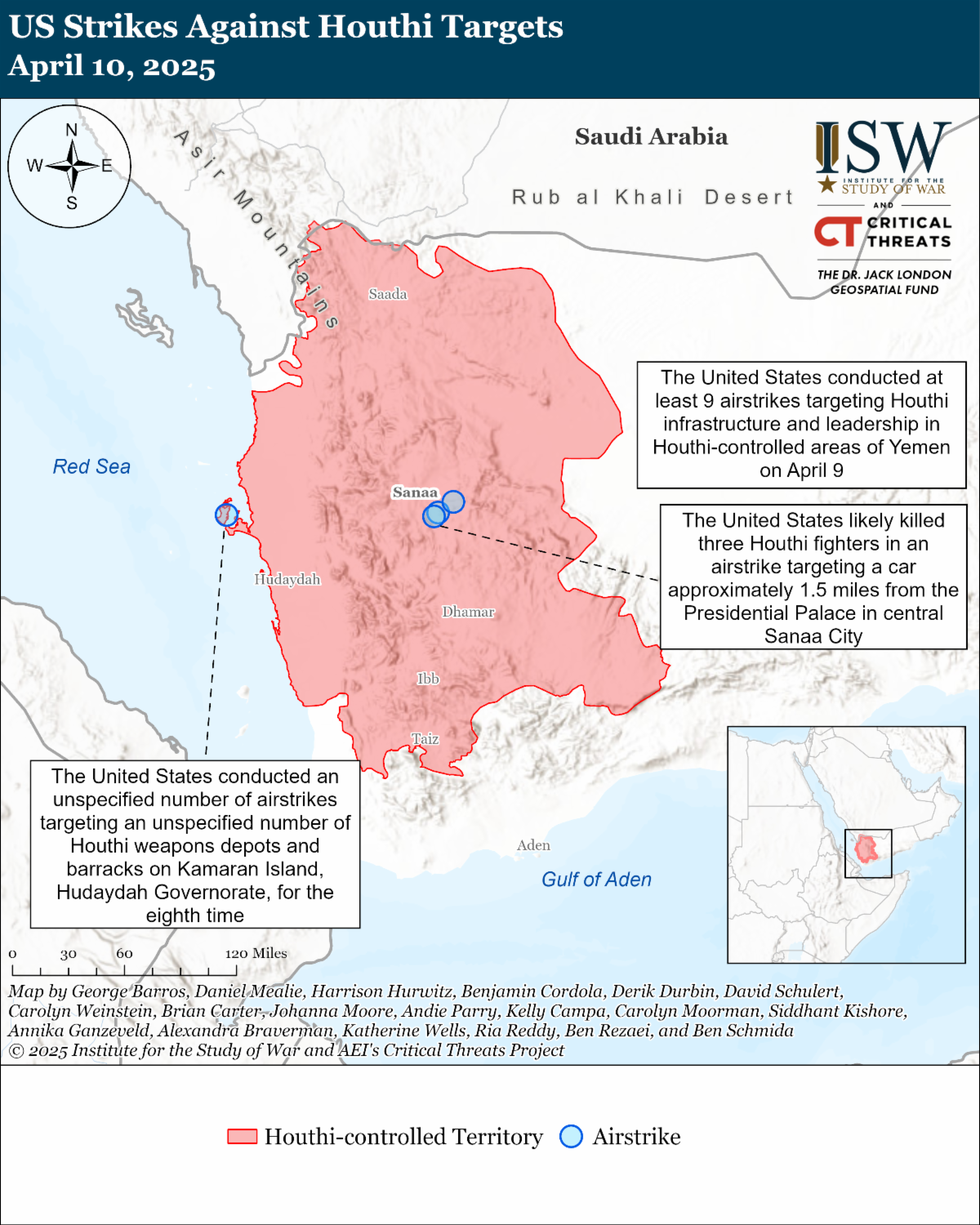A Senior Iranian official threatened to reduce cooperation with the International Atomic Energy Agency (IAEA) if external threats against Iran continue. Iranian Supreme Leader Adviser Ali Shamkhani stated on April 10 that Iran could expel IAEA inspectors, halt cooperation with the agency, or move enriched uranium to “safe and unknown locations” if external threats and military pressure continue. Iran has already restricted IAEA oversight, including withdrawing the designation of several inspectors in September 2023 and barring other top inspectors in November 2024. Shamkhani’s remarks may possibly aim to deter a potential US or Israeli strike on Iranian nuclear facilities and may also seek to instill urgency among Western officials for renewed negotiations.
China increased its Iranian oil imports by at least 80 percent in March compared to February. This undermines the US "maximum pressure" campaign, which seeks to drive Iranian oil exports to zero, and illustrates cooperation between two major US adversaries. Reuters reported on April 10 that China's imports of Iranian oil increased significantly in March amid concerns that new US sanctions could further restrict the Iranian oil supply, citing unspecified traders and analysts. Estimates show that Iran shipped between 1.3 to 1.8 million barrels per day to China in March. Most of these exports are transferred off the coast of Malaysia and Singapore and reflagged as Malaysian. China remains the largest importer of Iranian oil, buying 90 percent of Iran's total oil exports. China's Iranian oil imports help Iran circumvent US sanctions. Iran, China, and Russia issued a joint statement in mid-March condemning the US "maximum pressure" strategy vis-a-vis Iran. Chinese officials have echoed this statement since.
US Central Command (CENTCOM) conducted at least 9 airstrikes targeting Houthi infrastructure and leadership in Houthi-controlled areas of Yemen since April 9. CENTCOM conducted at least three airstrikes targeting Houthi underground facilities and weapons depots in Mount Nuqum, which is on the eastern outskirts of Sanaa City, for the second consecutive day. CENTCOM conducted at least five airstrikes targeting two other Houthi weapons depots around Sanaa City. CENTCOM targeted Houthi barracks and weapons depots on Kamaran Island, Hudaydah Governorate, for the eighth time since the start of CENTCOM’s airstrike campaign on March 15.
Key Takeaways:
- Iran Nuclear Talks: A Senior Iranian official threatened to reduce cooperation with the International Atomic Energy Agency (IAEA) if external threats against Iran continue, which may seek to instill urgency in the nuclear negotiations while deterring a strike on Iran’s nuclear facilities.
- Maximum Pressure: China increased its Iranian oil imports by at least 80 percent in March compared to February. This undermines the US "maximum pressure" campaign, which seeks to drive Iranian oil exports to zero, and illustrates cooperation between two major US adversaries.
- US Air Campaign in Yemen: CENTCOM has conducted nine airstrikes in Yemen since April 9. One strike may have killed Houthi commanders. The USS Carl Vinson carrier strike group also arrived in the CENTCOM area of responsibility.
- US Diplomacy in the Middle East: The US secretary of state discussed Yemen and “eliminating the Houthi threat,” among other issues, with the Saudi foreign minister. CNN previously reported that regional diplomatic efforts were under way for a Yemeni government ground offensive in Yemen.
- Syrian Centralization: Syrian Kurds and Druze communities and political factions have signaled concern over the trajectory of the transitional government. Both the Kurds and the Druze community have inked some agreements with the transitional government, but recent demands by the Kurds and statements from the Druze community reflect deeply held fears over the trajectory of the transitional government.
| 




 [ISW] 이란 업데이트, 2025년 4월 11일
[ISW] 이란 업데이트, 2025년 4월 11일
 [ISW] 이란 업데이트, 2025년 4월 8일
[ISW] 이란 업데이트, 2025년 4월 8일